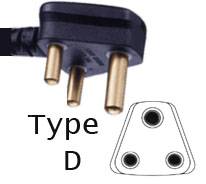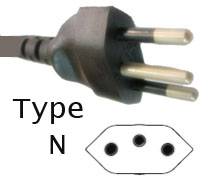South Africa, located at the southern tip of the African continent, is a land of extraordinary diversity, offering travelers an array of experiences ranging from vibrant cities and stunning landscapes to rich wildlife encounters and cultural heritage. From the iconic Table Mountain in Cape Town to the vast savannahs of Kruger National Park and the picturesque Garden Route, South Africa is a destination that captivates the senses and leaves a lasting impression on all who visit.
Ultimate South Africa Travel Guide
Destinations
Best time to go
The best time to visit South Africa depends on the region and activities you plan to pursue. Generally, the summer months from November to March offer warm weather and are ideal for beach holidays along the coast and wildlife safaris in national parks. However, the winter months from June to August are excellent for wildlife viewing, as animals gather around water sources in the drier conditions, particularly in Kruger National Park.
Average Temperature By Month
January: 21°C (70°F)
February: 20°C (68°F)
March: 19°C (66°F)
April: 15°C (59°F)
May: 12°C (54°F)
June: 9°C (48°F)
July: 9°C (48°F)
August: 11°C (52°F)
September: 14°C (57°F)
October: 16°C (61°F)
November: 18°C (64°F)
December: 20°C (68°F)
What To Expect
Time Zone:
South Africa operates on South Africa Standard Time (SAST), which is 2 hours ahead of Coordinated Universal Time (UTC+2).
Currency:
The official currency of South Africa is the South African Rand (ZAR). Currency exchange services are available at banks, exchange bureaus, and airports. Credit cards are widely accepted in major establishments, but it's advisable to carry cash for transactions in more remote areas.
Language:
South Africa is a multilingual country with 11 official languages, including English, Afrikaans, Zulu, Xhosa, and others. English is widely spoken and understood, especially in urban areas and tourist destinations, making it easy for travelers to communicate.
Airport:
The main international airports serving South Africa are O.R. Tambo International Airport (JNB) in Johannesburg, Cape Town International Airport (CPT) in Cape Town, and King Shaka International Airport (DUR) in Durban. These airports offer connections to various domestic and international destinations.
How To Get Around
Domestic Flights: Domestic flights are available for traveling between major cities and regions across South Africa. Several airlines, including South African Airways, Mango, and Kulula, operate regular flights, providing convenient transportation options.
Car Rental: Renting a car is a popular option for exploring South Africa, offering flexibility and independence to travelers. Several international and local car rental companies operate at airports and in major cities, providing a range of vehicles to suit different preferences and budgets.
Public Transport: South Africa has an extensive network of buses, trains, and minibus taxis for intercity and intracity transportation. Long-distance buses and luxury coaches are available for traveling between major cities, while trains offer scenic journeys and comfortable travel options.
Uber and Metered Taxis: Uber and metered taxis are available in major cities like Johannesburg, Cape Town, and Durban, providing convenient transportation within urban areas. It’s advisable to use reputable taxi services or ride-sharing apps for safety and convenience.
Average Temperature By Month:
January: 21°C (70°F)
February: 20°C (68°F)
March: 19°C (66°F)
April: 15°C (59°F)
May: 12°C (54°F)
June: 9°C (48°F)
July: 9°C (48°F)
August: 11°C (52°F)
September: 14°C (57°F)
October: 16°C (61°F)
November: 18°C (64°F)
December: 20°C (68°F)
Plugs:
The standard voltage in South Africa is 230 volts AC, 50Hz. The most commonly used plug types are Type M (South African) and Type D (Indian). It's advisable to bring a universal adapter if your devices have different plug types.
VPN:
Access to certain websites and online services may be restricted in South Africa. Consider using a virtual private network (VPN) to securely access the internet and bypass any censorship restrictions.
Safety:
South Africa is generally a safe destination for tourists, but it's essential to remain vigilant, especially in urban areas and tourist hotspots where petty crime can occur. Avoid displaying valuables openly and be cautious when exploring unfamiliar areas, especially at night. When driving, keep car doors locked and windows closed, and avoid leaving valuables in plain sight. Additionally, take precautions against sun exposure and stay hydrated, especially during outdoor activities. By staying informed and aware of your surroundings, you can enjoy a safe and rewarding journey through South Africa's diverse landscapes and vibrant culture.
Credit Cards and Banks
Credit Cards:
Credit card acceptance in South Africa is widespread, especially in urban areas, major tourist destinations, hotels, restaurants, and larger shops. Visa and MasterCard are the most commonly accepted, followed by American Express and Diners Club. However, some smaller establishments may prefer cash, so it’s advisable to carry some local currency as well.
ATMs:
ATMs are readily available in cities and tourist areas throughout South Africa, allowing you to withdraw South African Rand (ZAR). Johannesburg, Cape Town, and Durban have a high concentration of ATMs, but they can also be found in smaller towns. It’s recommended to withdraw enough cash when you have access to ATMs, especially if you plan to travel to more remote locations.
Currency Exchange:
The currency of South Africa is the South African Rand (ZAR). You can exchange major foreign currencies at banks, currency exchange bureaus, and some hotels. US dollars, euros, and British pounds are typically the most widely accepted foreign currencies for exchange.
Banks:
Major banks in South Africa include:
- South African Reserve Bank: The central bank of South Africa, responsible for monetary policy and regulating the country’s financial institutions.
- First National Bank (FNB): One of the largest banks in South Africa, FNB offers a wide range of banking services including savings accounts, loans, and foreign exchange.
- Standard Bank: Another prominent bank in South Africa, Standard Bank provides various banking products and services for individuals and businesses.
- Absa Bank: Operating internationally, Absa Bank offers retail and corporate banking services across South Africa.
Traveler’s Checks:
Traveler’s checks are becoming less common, and their usage is limited in South Africa. It’s recommended to carry cash or use credit/debit cards for transactions.
Tips for Banking in South Africa:
- Notify your bank before traveling to South Africa to avoid any issues with card usage abroad.
- Keep your PIN and card information secure, and be cautious when using ATMs, especially in secluded areas.
- Carry small denominations of South African Rand for smaller purchases, as change may be limited.
- Familiarize yourself with the current exchange rate to ensure fair transactions when exchanging currency.
By understanding the banking system in South Africa, you can ensure a smooth and hassle-free financial experience during your travels in the country.
Locations
South Africa
TRAVEL FACTS
US State Dept Travel Advisory
The US Department of State currently recommends US citizens exercise increased caution in South Africa due to crime and civil unrest.
https://travel.state.gov/content/travel/en/traveladvisories/traveladvisories.html
Passport/Visa Requirements
For the latest passport and visa requirements for this country, please consult the U.S. State Department’s “Learn About Your Destination” search tool, available through the link below.
US Embassy/Consulate
[27] (12) 431-4000; US Embassy Pretoria, 877 Pretorius St, Arcadia, Pretoria, South Africa; ACSJohannesburg@state.gov; https://za.usembassy.gov/
LGBTQIA+ Travelers
Telephone Code
27
Local Emergency Phone
Ambulance: 10177; Fire: 10177; Police: 10111
Vaccinations
The CDC and WHO recommend the following vaccinations for South Africa: hepatitis A, hepatitis B, typhoid, yellow fever, rabies, meningitis, polio, measles, mumps and rubella (MMR), Tdap (tetanus, diphtheria and pertussis), chickenpox, shingles, pneumonia, influenza, and COVID-19.
Climate
Mostly semiarid; subtropical along east coast; sunny days, cool nights
Currency (Code)
Rand (ZAR)
Electricity/Voltage/Plug Type(s)
230 V / 50 Hz / plug types(s): D, M, N



Major Languages
IsiZulu, IsiXhosa, Afrikaans, Sepedi, Setswana, English, Sesotho, Xitsonga, siSwati, Tshivenda, isiNdebele
Major Religions
Christian, African traditional, Muslim, Hindu
Time Difference
UTC+2 (7 hours ahead of Washington, DC, during Standard Time)
Potable Water
Yes
International Driving Permit
Suggested
Road Driving Side
Left
Tourist Destinations
Kruger National Park; Cape Town; Kgalagadi (Kalahari) Transfrontier Park; Stellenbosch; Drakensberg; Garden Route; iSimangaliso Wetland Park; Cape of Good Hope; Robben Island (Nelson Mandela’s prison); Cradle of Humankind, Gauteng
Major Sports
Rugby, cricket, soccer, boxing
Cultural Practices
It is polite to receive items with both hands together, held out as a cup.
Tipping Guidelines
It is customary to tip 10-15% for good service in restaurants. For private drivers, 100 rand per person per day is appropriate.
Souvenirs
Zulu spoons, Zulu beaded items, seshweshwe fabric, Rooibos tea, wine and liqueur
Traditional Cuisine
Bobotie — minced meat simmered with spices, especially curry powder, herbs, and dried fruit, then topped with a mixture of egg and milk and baked
Please visit the following links to find further information about your desired destination.
World Health Organization (WHO) – To learn what vaccines and health precautions to take while visiting your destination.
US State Dept Travel Information – Overall information about foreign travel for US citizens.
To obtain an international driving permit (IDP). Only two organizations in the US issue IDPs:
American Automobile Association (AAA) and American Automobile Touring Alliance (AATA)
How to get help in an emergency?
Contact the nearest US embassy or consulate, or call one of these numbers:
from the US or Canada – 1-888-407-4747 or from Overseas – +1 202-501-4444
Central Intelligence Agency.
The World Factbook.
/the-world-factbook
(May 8, 2024)



